Interview: Shivam Nair – ‘In OTT, writing is the hero; the story is the hero’
On growing up in Bihar, knocking on Satyajit Ray’s door, working in TV in Mumbai, the brotherhood of film industry outsiders, and the freedom of OTT
From Kerala to Bihar to Bombay, what was your childhood like?
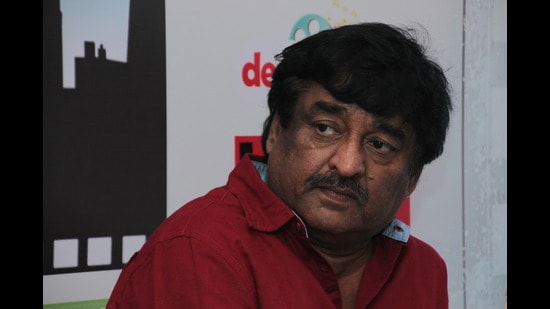
I was born in a nondescript village in Kerala, which didn’t even have electricity earlier. I have seen electricity arrive there. We lived in a joint family. In my fifth standard, my father and our family moved to Bihar. This was the first turning point in my life. Around us were only two or three families from Kerala. I had passed the fifth standard back in Kerala but had to join the same standard in Bihar because I did not follow Hindi at all. Everybody else spoke only in Hindi and since I did not understand it at all, the local kids bullied me a lot in my initial days in Bihar. Then it became a matter of survival. After settling down in the new environment for a couple of years, to escape bullying, I somehow befriended a couple of notorious kids at school. They were goons. That’s when my life took a sort of a wild turn. I started bunking school and got into all sorts of fights and quarrels in the company of my new friends. It was in stark contrast with my days in Kerala that were cultured and simple. I consider myself extremely lucky that I started playing cricket soon – I even played at the district level eventually. Otherwise, nothing would have stopped me from becoming a criminal. All those guys from my school in Bihar eventually became criminals. Then, in this wild life of my teenage years, outside of cricket, I developed another interest, which was cinema. These two things kept me away from the path of crime, which I could have so easily gone on.
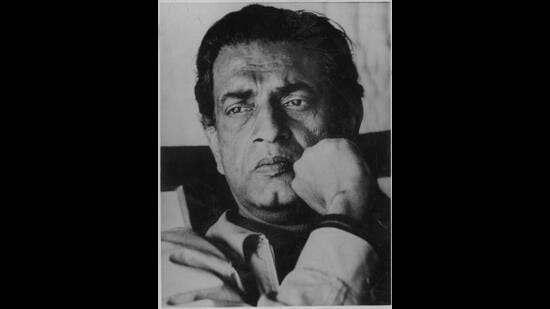
After the 10th standard, somehow cinema took the front seat in the then unruly vehicle of my life. But what was cinema? I kept wondering. And how could I get into it? I had heard of Satyajit Ray and Mrinal Sen and of other filmmakers in Calcutta. I thought I’d just go to Calcutta and work with them without thinking of the practical probability of it happening. One of my cousins had started working at the Bank of India and one day, he had to go to Calcutta to meet his boss. I told him I wanted to roam around the city and would like to accompany him. It was in the train that I told him my real intention to go to Calcutta. After his meeting with the boss was over, I announced with the confidence of youth, “I want to meet Satyajit Ray!” His bosses didn’t know what to say. But one of them finally showed me his house and said, “This is his house, see it and go back.” But I was pretty sure I wanted to meet him and I entered the house. My acquaintance was so afraid that he only stayed on the staircase. He was behaving as if we were there to commit a crime. But I rang the doorbell. For the first few minutes, nobody opened the door. But I kept trying. Then, Ray’s house help answered the door. It was such a tall door that the guy was standing on a stool when he opened it. I told him with great confidence that I was there to meet Ray. He asked me to wait. In some time, he asked me to walk into a room. There was the great Satyajit Ray in his study! I was amazed to see him but at the same time I told him that I wanted to assist him and learn filmmaking. He never made eye contact with me. He asked me what I had studied and then told me to take the FTII exam and learn filmmaking from there. But I insisted to learn from him and then he said nothing. After a silence, his house help came back and asked me to leave. I don’t remember the exact year but this was the time when Ray was working on Satgati. I went out the door with a strange feeling. Such a big guy had rejected me upfront, I thought. I told my cousin that Ray spoke to me very well but in reality, I was not feeling good. Now I was all the more convinced that I have to get into films and prove myself. From there, my by-then Bihari mind found a way to reach Mrinal Sen. Mrinal Sen spoke to me politely and told me he wouldn’t mind my working with him but he explained his financial situation and said that he and his family themselves were not in a situation to afford to pay me anything.
Now, there was no way I could have survived in Calcutta without money. At that point, I wasn’t even a graduate. Saddened, I went back to Bihar. But as soon as I took my final year exams, without waiting for the results, I ventured out of home on another journey. This time, to Bombay, which was going to define my life.
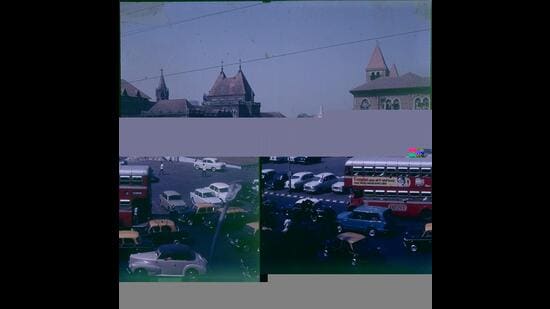
What was your first impression of Bombay? How was the city different then especially in the eyes of a young writer, filmmaker?
I arrived in Bombay in 1981. It’s been 41 years! Initially, Bombay looked like a dream to me. Everything looked big and surreal. Bombay is one city that lets you achieve what you want to – I can totally vouch for this notion. It doesn’t let you be lazy or slow down; it facilitates your journey. When I came here to work in films, Bombay for me was mostly Juhu and Bandra because that’s where the biggies of the industry lived. On the first film that I got to be an assistant on, the chief assistant used to tell me to get paan and cigarettes. I felt humiliated. Most people in the unit in those days weren’t educated. People waited for years to assist big directors. There was a lot of lobbying back then and I found it difficult to enter. I assisted on many films that never got made. And I was finding my way. Then fortunately, TV happened.
You’ve worked extensively in TV. Tell me what it did for you.
Without TV I may not have survived in Bombay in the 1980s. It was a tricky time for a youngster like me to break into films. TV gave me and many others the work and the money that we were desperately looking for. I think TV’s contribution is huge even in some of our journeys as filmmakers. If you are an exceptional talent, if you’re brilliant, then you’d breakthrough anyhow. But TV was a platform where average people could find work. Average talent needs experience to get polished. And it’s very difficult for average talent to get transformed and make it big.
TV in India started with Doordarshan in the 1980s. However, its revolutionary moment came in the 1990s when private channels joined the trade. There came a point in the 1990s when some of them started the episodic format – Rishtey, Saturday Suspense, Star Best Sellers were all platforms for us to tell stories that were about 45 minutes long. Along with me, everyone including Imtiaz (Ali), Vishal (Bharadwaj), Anurag (Kashyap), all of us found an amazing opportunity there to express ourselves. All of us put in a great amount of hard work to prove ourselves without caring about money. We were all outsiders so we were there for each other. There was a healthy jealousy amongst us and we supported each other’s work as well. At that time there was nothing called a Creative Head in channels. This allowed us to explore every aspect of filmmaking.
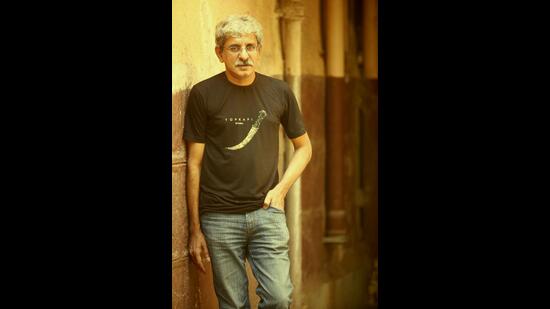
When did you start writing seriously?
I think pretty late. It took me too long to realise that it’s all about the story. I spent many years finding my way from one film project to another and to TV. In those days, there were no books, no internet available. There was no source really to even develop the feeling to want to learn writing. I got to hone my craft – I edited, assisted, directed. But writing was elusive for me. I think it was (Sriram) Raghavan, in the early 1990s, who showed me the importance of writing. He had studied at FTII and was exposed to world cinema. He introduced me to that world and also made me realise the importance of scripts. I edited his documentary Raman Raghav. Then I wrote Ranga Billa and also worked on Auto Narayan. But it took me still longer to release that craft is important and necessary but writing is the only place where your voice can come through. It’s the story that makes a film truly yours. Some people have insight at an early age and some take longer to discover it. But one must discover oneself in the practice of filmmaking and that can only happen through stories.
Do you think writing a role for a particular star is a good approach? Have you ever done that?
No, I have never done that. Maybe directors who are friends with stars have done that. I never was in a circle like that. So even if I want to write a character for, let’s say, Aamir Khan, I really doubt he would ever do it. I also believe in the story and look to cast the right actor for the story. Stars can be big or small but stories are not big or small. Stories are stories.
You’ve worked on four serial killer documentaries. Why did this genre appeal to you?
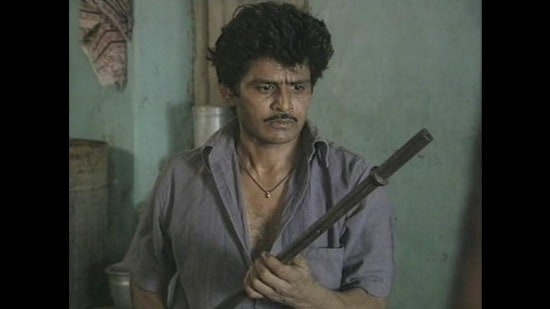
It all started with Sriram Raghavan. He first started working on Raman Raghav, in which I was involved as an executive producer as well as the editor. That’s when he introduced me to the works of Scorsese and the likes. I then told Anurag (Kashyap) about Scorsese and his work and look, today, Anurag has even met Martin Scorsese! That’s been his journey. Coming back to Sriram, he introduced me to many films and filmmakers across the world. Then I started enjoying it. After Raman Raghav, I worked on Ranga Billa, Auto Narayan and Feroz Daruwala in different capacities. Those days, everything I was doing on film involved murder and crime. And people around were interested in that too. But slowly, I wanted to move away from that and go back to my roots. Yes, I did a lot of thrillers after that too. Spy thrillers that I worked on later are also a similar genre.
You waited 25 years after coming to Bombay to direct your first feature film Ahista Ahista. Was it a choice?
No, I couldn’t break in earlier. That’s the straight truth. I just never got a chance. You know, the first feature film I wanted to make was called Informer. It was written by Anurag (Kashyap). This must be somewhere around 1994 to 96. Anurag had written Auto Narayan, the serial killer documentary I directed. And he also wrote Informer which I thought I’d make it into a feature film. We tried a lot to make it happen. Anurag and I met Subhash Ghai, Pooja Bhatt and many potential people who could produce it but nobody did. The film never got made. I still have that script. Then I went back to TV and told myself that this is what is helping me survive and I should stick to it. Many years later, in the mid-2000s, Imtiaz had a script and he wanted to direct it as his first film but his conversation didn’t work out with the producers for some reason. Now the script was ready and he and Anurag insisted that I direct it. That’s how Ahista Ahista happened in 2006 and it worked out very well for me. Had the two of them not pushed me, I would have never made it because at the time, I still wanted Informer to somehow be my first film.
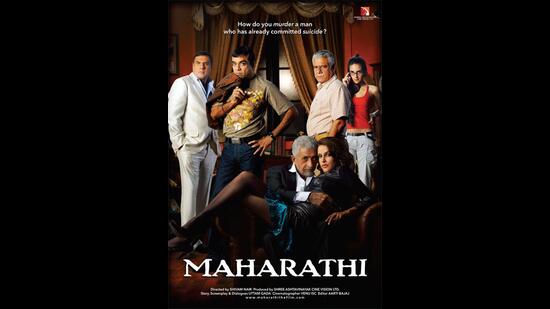
How did the process of making Maharathi unfold?
Maharathi was adapted from a novel by James Hadley Chase called There’s Always a Price Tag. The script was written by Uttam Gada originally for a Gujarati play. Initially, Vikram Bhatt was supposed to direct the film. But just before he was to start the first shooting schedule, something happened and he decided not to. Then he called me and asked if I’d be interested in doing it. The cast was ready and I was enticed by the idea of working with actors like Paresh bhai (Rawal), Naseerudding Shah, Om Puri and Boman Irani. I was thinking in my gut that the story had to be rewritten more cinematically. The story and screenplay were all good but I constantly felt that it might look like a play, because of the single location and the way it was written. I told Paresh bhai about this and that is what eventually happened. Paresh bhai still tells me he should have listened to me.
Was there a time of frustration in your life as a writer?
Frustration that comes from not getting to do what I want to has always been present. I think for many years I kept working on projects that came my way. Somebody had the material; I had only limited ways of handling it and stuff like that. Till very recently, that’s the way I went about it and often found it difficult to convince producers and financers to let me do what I want. I consciously changed this approach very recently. On the OTT show that I am doing, my approach is different. I have now decided not to work on anything where the idea doesn’t appeal to me.
You are working rigorously on OTT. Do you perceive the medium to be transformational?
OTT has allowed me and everyone else to explore stories that were impossible to tell before. In OTT, writing is the hero; the story is the hero. Also, you don’t have to be afraid of a Friday release any longer and crumble under the huge financial expectations of producers, as it happens in films. Another thing that OTT has allowed us to do is to understand and learn more about characters. It allows us to get into layers that were unthinkable before. On the show that I am working on, I am involved in the conception of every character and every aspect of the story.
The Malayalam film industry is doing very well. Have you ever thought of making a film there?
That industry is doing well but in the smaller pie that it is, the competition is quite tough. Another thing about me is that although I know the language, I don’t think I belong to that world. I have never lived there after the first few years of my life. I know many writers from the Malayalam film industry. Their strength is that they are rooted in their reality and the everyday life that they experience. There are successful writers who live in villages even today, drink at the same bars, do the same gossip, take a bus to Kochi for a meeting and back to their village. This rootedness is one of the main reasons for those kind of stories to come up there. But I don’t live that life in Kerala so it may be difficult for me to create those nuances on film.
Do you think the Hindi film industry is creatively much less ambitious and rather averse to experimentation than it could be? If so, why?
The reason to the why is layered. This industry believes in formula-based filmmaking. If a particular genre becomes successful, everyone tries to jump in and make the same kind of cinema. Secondly, everyone here wants a cut of the money. It’s a chain of people from producers to distributors who have had their own lobbies who dominate the final product. Plus, the kind of money that rides on Hindi films can be stupendous. Hence, as an industry, people here are averse to experimentation, and good stories and good writers often suffer.
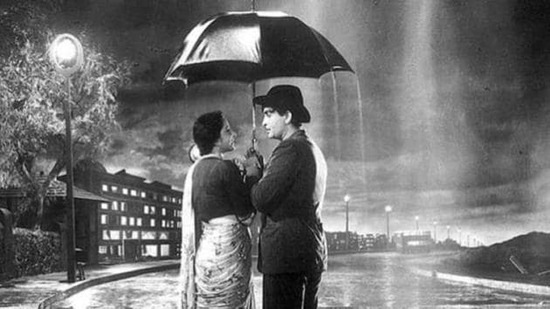
Who are your favourite films and filmmakers?
The first ever film that influenced me a lot, when I was in Bihar, was Shyam Benegal’s Junoon. That film didn’t work at all in Bihar and ran only for three days. But I was fortunate to watch it. It impacted me a lot and transformed me. Then, earlier in my life, I loved Guru Dutt’s films a lot. Then Raj Kapoor’s initial films – Awara, Sri 420, etc. As I said, I discovered international cinema much later in life. From there, I think Martin Scorsese is my favourite. I might even go on to say that Goodfellas is my favourite film of all time. That storytelling is strangely fantastic. I have also been a huge fan of Akira Kurosawa. His lensing, blocking, his craft of filmmaking is marvellous.
What are your favourite OTT shows?
Honestly, I don’t think India has reached anywhere in the OTT world yet. We are like the kids who hope to grow up and become good people one day. OTT surely has a lot of opportunity. I think in the next five to seven years, a lot of good stuff might come out of India and a lot of new writers may get a chance. Young people are watching Spanish and Israeli shows and that is bound to influence them as well as writers and creative people. But let me tell you, as of now, nobody is watching Indian shows outside of India. What we are doing on OTT is using a lot of swear words and a lot of regional lingo. But using authentic lingo is not thinking original ideas. I think we lack character understanding on a deeper level and a sense of originality and plot. Internationally, I like Breaking Bad and Narcos a lot. But I don’t think I have seen as many shows as I would like.
In the last 41 years that you have spent in the industry, is there anything you have done or not done that you would do differently in retrospect?
Definitely. Most importantly, I would rather have discovered earlier in life that my purpose of being here is to tell stories. I drifted and floated around a bit too much. I would change that given a chance. I spent a lot of time on marriage, kids, friends, partying, drinking and other worldly indulgences but I did not discover myself enough. I lacked focus and kept drifting. Now, this is what I have realised at the age of 58: If I were to get 300 more years to live, I might end up with more wisdom.
Mihir Chitre is the author of two books of poetry, ‘School of Age’ and ‘Hyphenated’. He is the brain behind the advertising campaigns ‘#LaughAtDeath’ and ‘#HarBhashaEqual’ and has made the short film ‘Hello Brick Road’.
The views expressed are personal
All Access.
One Subscription.
Get 360° coverage—from daily headlines
to 100 year archives.



HT App & Website






